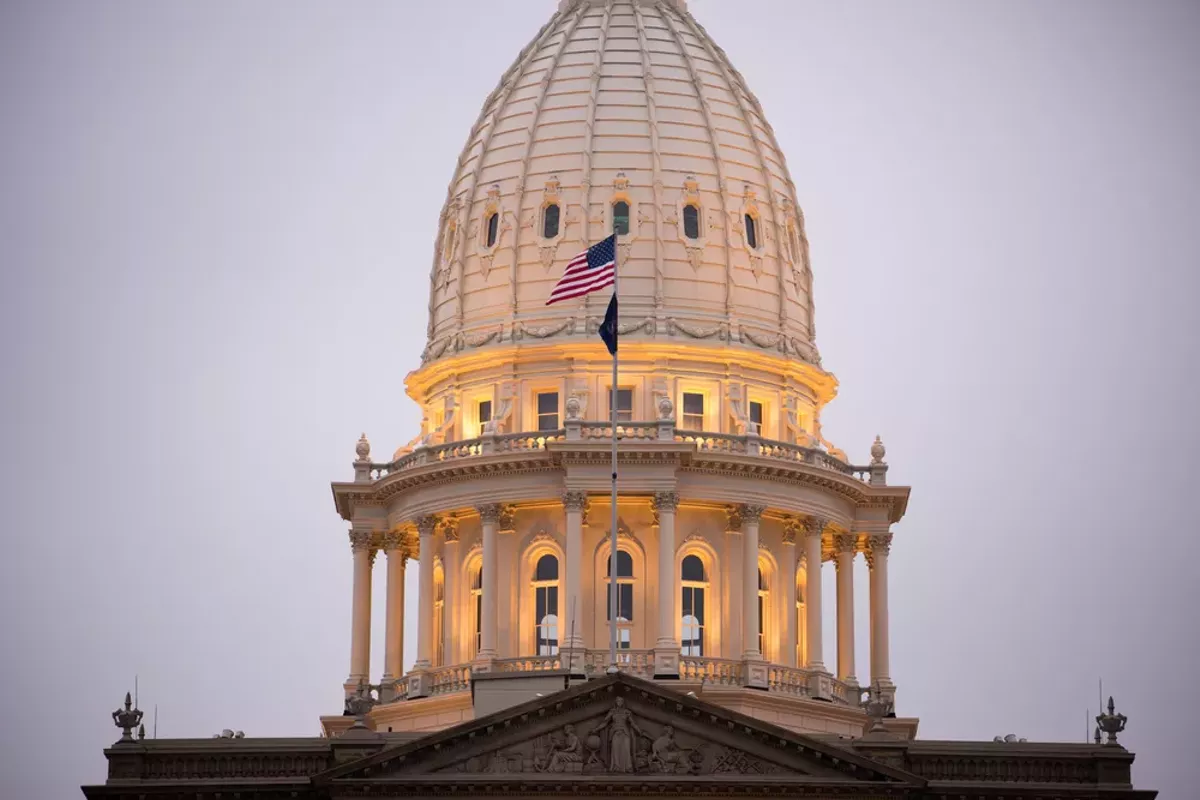Michigan Senate finally passes bills to expand FOIA to governor and Legislature
Michigan’s state government faces significant trust issues with voters and was ranked last in the nation for integrity


Audio By Carbonatix
[
{
"name": "GPT - Leaderboard - Inline - Content",
"component": "35519556",
"insertPoint": "5th",
"startingPoint": "3",
"requiredCountToDisplay": "3",
"maxInsertions": 100,
"adList": [
{
"adPreset": "LeaderboardInline"
}
]
}
]
Michigan is one of only two states that shields the governor’s office and the Legislature from providing records under the Freedom of Information Act.
That could soon change after the state Senate on Thursday passed bipartisan legislation aimed at expanding FOIA to include the executive and legislative branches of state government.
Lawmakers approved the two bills by a 36-2 vote, with Sens. Jon Bumstead, R-North Muskegon, and Jonathan Lindsey, R-Allen, voting against the legislation.
It has been a long time coming. Sens. Jeremy Moss, D-Southfield, and Ed McBroom, R-Vulcan, first introduced the bills nine years ago while they were in the state House.
Finally, the bills are headed to the state House for a vote. But the legislation will have to wait until the House comes back from its summer break.
“We can no longer sustain any more scandals in Lansing that are made possible by the dark areas in law in which they can exist,” Moss said in a statement. “We have finally reached the elusive Senate vote to expand FOIA and our majority is beginning a new chapter of openness in our state.”
If passed by the House, as expected, Gov. Gretchen Whitmer will likely sign the bills into law. When she was running for her first term in 2018, Whitmer said expanding FOIA would be a priority.
McBroom said the legislation will shine more light on elected officials.
“There are many ways to help our state government be more accountable and this is one that should have been in place years ago,” McBroom said. “I hope we will get this passed and keep working to put the citizens first in how the government actually operates.”
The governor and Legislature have been exempt from FOIA since the law was enacted in 1976.
Michigan and Massachusetts are the only states in the country that allow the governor’s office and Legislature to bypass FOIA.
Michigan’s state government faces significant trust issues with voters and was ranked last in the nation for integrity in a 2015 report from the Center For Public Integrity.
In November 2022, after state lawmakers failed to act, Michigan voters approved a measure that created new financial disclosure requirements for the governor, lieutenant governor, secretary of state, attorney general, and state lawmakers. Under Proposal 1, state elected officials are required to file annual reports detailing their assets and sources of income, positions held outside of state government, and agreements or arrangements regarding future employment, gifts, and travel payments received.
State lawmakers said the FOIA legislation is an important step in restoring trust with voters.
“The passage of this bipartisan legislation demonstrates our staunch commitment to increasing government transparency and accountability, and in turn, restoring public trust in our institutions,” Senate Majority Leader Winnie Brinks, D-Grand Rapids, said.
Additional action is needed to create more transparency and trust, said state Sen. Michael Webber, R-Rochester Hills.
“We still have a lot of work ahead of us, and I will continue to advocate for more transparency at all levels of government,” Webber said. “Government that is for the people, by the people works best out in the open for all to see.”






